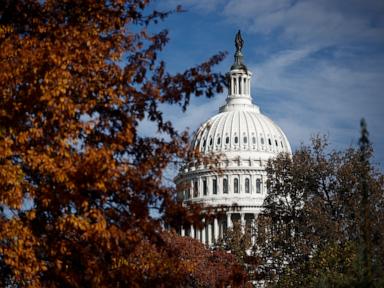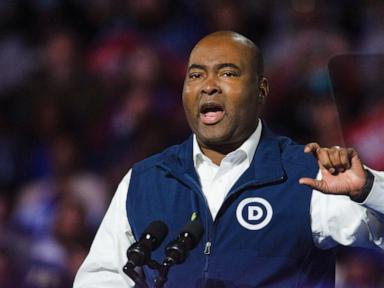It could be days or possibly weeks before it becomes clear whether Democrats or Republicans have secured control of the House, as dozens of races remain unsettled in key battleground districts.
For Democrats, crushed by Vice President Harris’s defeat and GOP-flipped Senate seats, the tight House contests that remain on the line provide a faint glimmer of optimism.
Rep. Suzan DelBene (D-Wash.), chair of the Democratic Congressional Campaign Committee, told NPR's Morning Edition on Election Day that Democrats put emphasis on "purple districts" that could elect a Republican or Democrat.
"You’ve seen this Congress, the chaos, dysfunction and extremism, the Republicans almost shutting down the government a few times, but the reason we kept getting through those was because Democrats stood up in the minority to help move legislation to keep the government running to prevent us from defaulting," she said.
Trump's win in nearly every battleground state — Arizona has yet to be called, though he leads by about 5 points — appears to have helped propel turnout across the country, helping Republicans up and down the ballot.
The Hill/Decision Desk HQ's forecast gives Republicans a 52 percent chance of maintaining control of the House but projects a majority of just one seat – an indicator of just how close the majority will be, no matter which party comes out on top. The GOP’s current hold on the chamber is razor-thin at 220 seats for Republicans to 212 for Democrats, with three vacancies.
“The days of a 230, 240 majority are gone,” one GOP strategist told The Hill, noting the impact redistricting has had on the number of competitive seats. “So, it’s going to be a small majority for whoever wins.”
Some states, including California where several seats could go either way, will continue to count mail-in ballots for several days beyond Election Day, including military and overseas votes. Narrow outcomes also often spawn challenges and lawsuits, extending the length of uncertainty.
Trump’s decisive, 276-plus electoral vote victory over Harris has teed up a major shift in government to the right. A House GOP majority would ensure two years of nearly unfettered rule for the nation's 45th and 47th president.
"America has given us an unprecedented and powerful mandate," Trump said during his victory speech early Wednesday morning in Florida.
House Speaker Mike Johnson (R-La.) left his own election night party in Louisiana to celebrate Trump’s win in Florida, even as the GOP's grip on the House remains uncertain.
“He’s doing a terrific job,” Trump said of Johnson, who was elected Speaker in October 2023 after the ouster of then-Speaker Kevin McCarthy (R-Calif.) amid House GOP infighting.
A House Democratic majority would set the stage for Leader Hakeem Jeffries (D-N.Y.) to become the nation’s first Black House Speaker, following Rep. Nancy Pelosi's (D-Calif.) reign as the first female Speaker.
"In a challenging political environment, House Democrats are once again defying political gravity," Jeffries said in a statement Wednesday afternoon. "The path to take back the majority now runs through too close to call pick-up opportunities in Arizona, Oregon and Iowa; along with several Democratic-leaning districts in Southern California and the Central valley."
"The party that will hold the majority in the House of Representatives in January 2025 has yet to be determined. We must count every vote," he added.





















